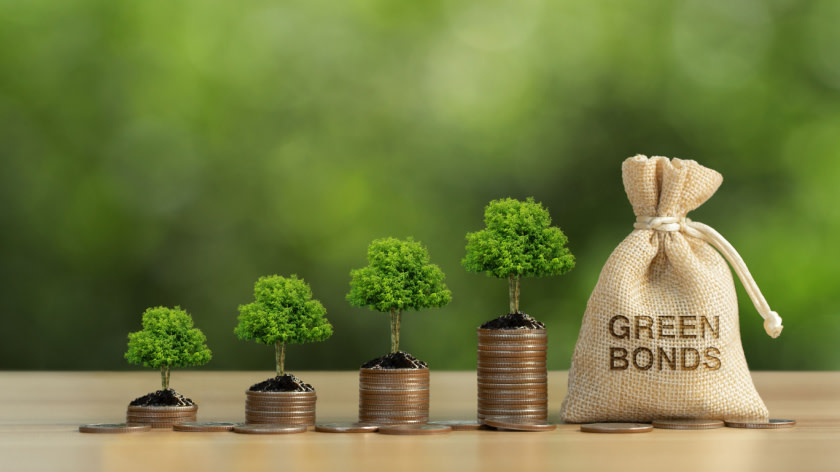Green Bonds: Bangladesh’s Foray into Ethical Finance

Introduction: Ethical Finance Takes Root in Bangladesh
The global shift toward ethical and sustainable finance has created a new frontier for developing economies, and Bangladesh is no exception. Among the emerging tools in this space, green bonds stand out as a powerful financial instrument aimed at funding environmentally friendly projects.
Green bonds represent more than just a financial product—they symbolize Bangladesh’s commitment to sustainable development, energy transition, and climate resilience. As global investors seek climate-positive portfolios, Bangladesh’s entry into the green bond market signals both economic opportunity and environmental responsibility.
🡪 Related reading: Why Global Investors Are Looking Toward Bangladesh
What Are Green Bonds?
Green bonds are debt instruments issued specifically to raise funds for climate or environmental projects. These can include renewable energy initiatives, sustainable agriculture, pollution reduction, and climate adaptation infrastructure.
Issued by governments, corporations, or development banks, green bonds come with a key caveat: proceeds must be allocated to green-certified projects, often verified by third-party environmental frameworks such as the Climate Bonds Initiative (CBI) or ICMA Green Bond Principles.
Bangladesh’s Entry Into the Green Bond Market
In 2022, Bangladesh made headlines when Bangladesh Bank released guidelines for banks and financial institutions to issue green bonds. This regulatory push laid the groundwork for sustainable investment products in the country, especially as part of its Vision 2041 to transform into a high-income, environmentally resilient nation.
Milestones:
-
In 2023, Bank Asia Limited became the first private bank in Bangladesh to issue green bonds, raising BDT 500 million.
-
IDCOL (Infrastructure Development Company Limited) also planned to issue its own green bonds focused on solar energy and clean transportation projects.
-
Bangladesh’s stock exchanges, including the Dhaka Stock Exchange (DSE), are preparing to support listing and trading of green financial instruments.
🡪 Explore: Investing in the Textile Sector: Opportunities and Risks
Why Green Bonds Matter for Bangladesh
Bangladesh faces serious climate challenges: rising sea levels, frequent flooding, and water salinity threaten its agricultural heartland and urban infrastructure. Yet, the country also holds enormous renewable energy potential—particularly in solar and wind power.
Green bonds serve as a dual-purpose instrument: they attract ethical capital while financing essential sustainability projects.
Benefits include:
-
Climate finance access: Taps into the growing global market for sustainable finance (estimated at $1 trillion in annual issuance globally).
-
Investor confidence: Transparent use-of-proceeds reporting appeals to ESG-focused funds.
-
Long-term planning: Encourages forward-looking, climate-resilient infrastructure development.
🡪 Related: The Potential of Blue Economy for Bangladesh
Sectors That Can Benefit
1. Renewable Energy
Projects like off-grid solar for rural communities, solar irrigation pumps, and utility-scale wind farms are ideal candidates for green bond financing.
2. Sustainable Infrastructure
Green bonds can help finance flood defenses, water purification systems, and eco-friendly urban development.
3. Textile & Apparel Industry
As Bangladesh’s largest export sector, textile manufacturers are now under pressure to adopt eco-friendly processes—from wastewater treatment to energy efficiency.
4. Transport
The introduction of electric buses, hybrid ferries, and rail electrification align perfectly with green finance goals.
🡪 See: Smart Logistics & AI: Revolutionizing Bangladesh’s Export Supply Chains
Challenges Bangladesh Must Overcome
While the outlook is promising, Bangladesh must address several hurdles before green bonds can achieve scale:
-
Verification standards: There is still limited local capacity to verify and audit green projects by international benchmarks.
-
Investor education: Institutional investors need more knowledge of ESG frameworks to confidently invest.
-
Liquidity and awareness: Green bonds remain relatively unknown in the local retail and SME investment communities.
🡪 Read more: Remittances and Forex Stability in 2025
International Support & Partnerships
Several multilateral and bilateral partners have shown interest in supporting Bangladesh’s green bond market:
-
Asian Development Bank (ADB): Actively engaging in funding green infrastructure.
-
World Bank: Provides technical assistance to regulators and issuers.
-
UNDP: Supports climate finance capacity building in Bangladesh.
These partnerships can help Bangladesh align with global green taxonomy standards and accelerate market maturity.
Future Outlook: Green Bonds in Bangladesh’s Economic Strategy
As Bangladesh continues to grow economically, integrating sustainability into financial systems will be a key driver of long-term success. Green bonds offer a promising tool to bridge climate resilience with financial inclusion, especially if the government incentivizes both issuers and investors.
Potential Policy Enhancements:
-
Tax incentives for green bond investments
-
Subsidized credit lines for green issuers
-
ESG training and certification programs
🡪 Also check: Role of Blockchain in Transforming Bangladesh’s Supply Chain
Conclusion: A Greener Financial Future for Bangladesh
Bangladesh’s journey into the world of green bonds is still in its early stages, but the direction is clear: ethical finance is no longer a niche—it’s a necessity. For local entrepreneurs, government planners, and international investors alike, green bonds represent an opportunity to fund the future while protecting the planet.
At Bangladesh-Agent.com, we help global investors connect with reliable sourcing, investment, and logistics services rooted in sustainability and compliance. Our team can assist in navigating both green finance and ethical supply chain models.